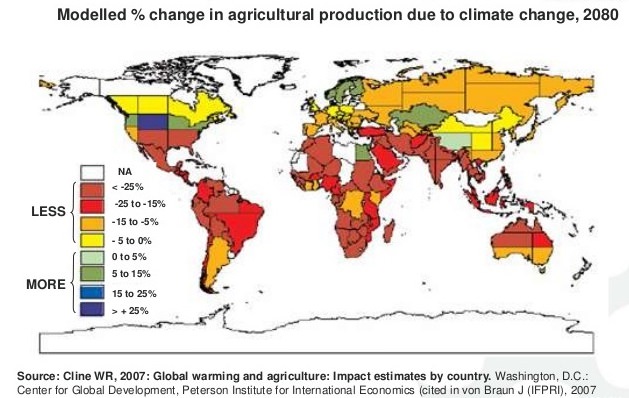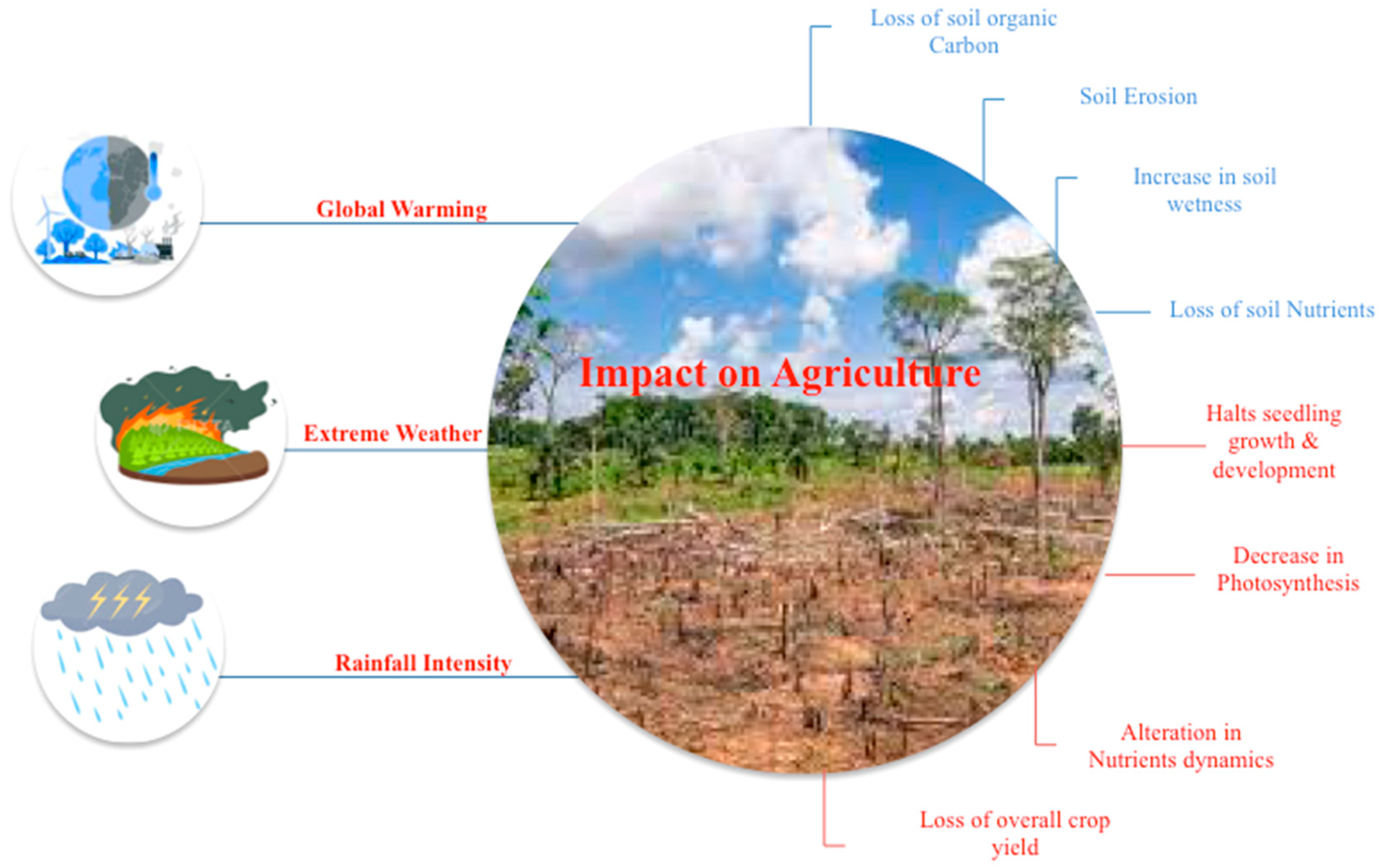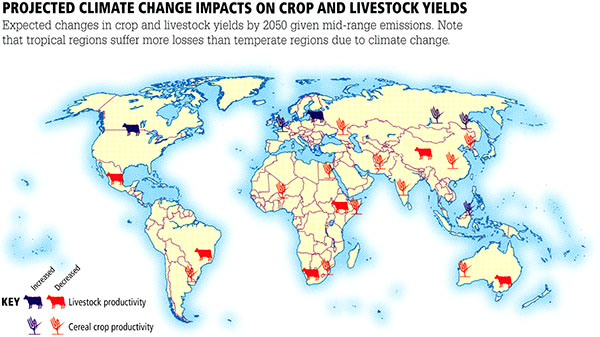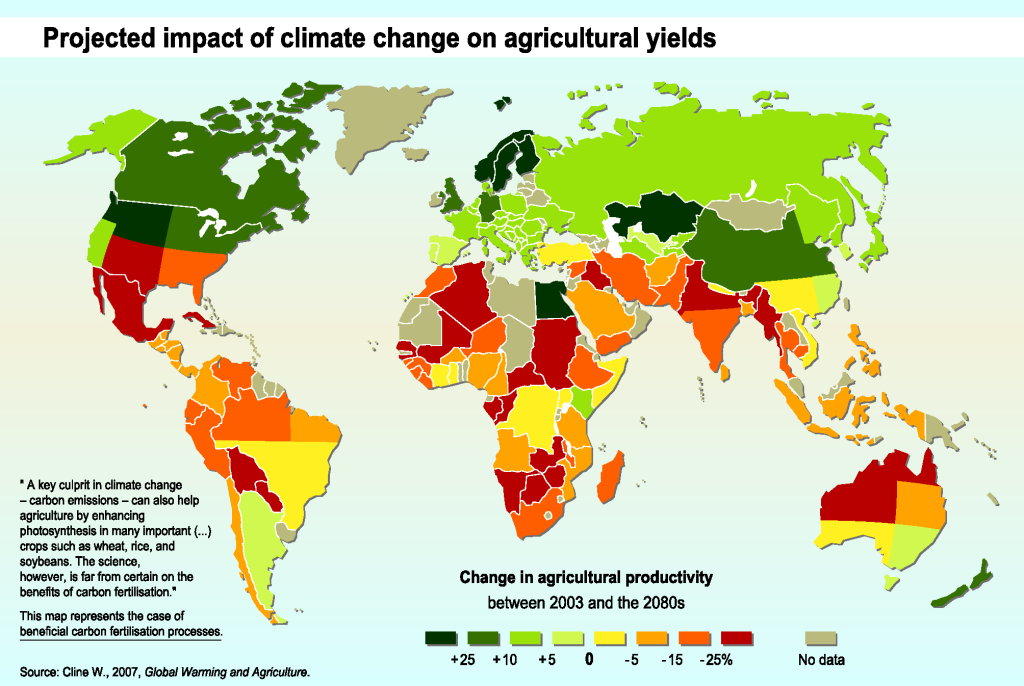Imagine walking through the lush fields of your favorite farm, only to find fewer crops and more barren patches. The soil feels different beneath your feet, and the air carries an unfamiliar dryness.
If you’ve noticed these changes, you’re not alone. Climate change is reshaping agriculture across the globe, and its effects are creeping into your food and your environment. You might be wondering how these shifts directly impact what you eat, the farmers who grow your food, and the global economy at large.
Understanding this connection is crucial, not just for those working in agriculture, but for everyone who relies on the planet’s bounty. As you read on, you’ll discover the intricate ways climate change is altering farming practices, affecting food supply, and influencing your daily life. This isn’t just about weather patterns; it’s about the future of food security and sustainability. Keep reading to uncover the hidden impacts and learn what you can do to help mitigate these changes.
Changing Weather Patterns
Climate change is reshaping our world in countless ways. One of the most critical areas affected is global agriculture. Farmers rely on predictable weather patterns to grow crops. But these patterns are changing rapidly. This change disrupts crop cycles and affects food production worldwide.
Changing Rainfall Patterns
Rainfall patterns are becoming erratic. Some regions face severe droughts. Others experience intense floods. This unpredictability makes farming challenging. Crops need consistent water to thrive. Too much or too little can be harmful. Farmers struggle to adapt to these new conditions.
Temperature Fluctuations
Temperatures are rising globally. Heatwaves are more frequent. Crops have specific temperature needs. High temperatures can damage crops. They can also increase pests and diseases. Farmers must find ways to protect their crops.
Seasonal Shifts
Traditional seasons are shifting. Winters are milder and shorter. Summers extend longer than before. This affects planting and harvesting times. Farmers must adjust their schedules. It requires new strategies for crop management.
Extreme Weather Events
Extreme weather is becoming common. Hurricanes, tornadoes, and storms are more intense. These events can destroy entire harvests. They also damage infrastructure. Recovery from such events is costly and slow.

Crop Yield Variability
Climate change causes unpredictable weather patterns, affecting crop yield variability. Farmers face challenges with droughts, floods, and shifting growing seasons. These changes disrupt food supply, impacting global agriculture.
Crop yield variability is a growing concern as climate change continues to alter weather patterns worldwide. This variability can affect the quantity and quality of crops produced, leading to fluctuations in food supply and prices. Understanding how climate change influences crop yields is crucial for developing strategies to ensure food security.Climate-induced Weather Extremes
Weather extremes like droughts, floods, and heatwaves are becoming more common due to climate change. These events can severely affect crops, reducing yields and damaging plants. Imagine a farmer facing unexpected drought—how can they ensure their crops survive without enough water? Adaptation strategies are necessary to manage these unpredictable weather events.Changing Growing Seasons
Changing weather patterns can affect the timing of planting and harvesting. As temperatures rise, some regions may experience longer growing seasons, while others may see shorter ones. Have you ever thought about how a few weeks’ shift in planting time can affect an entire year’s crop yield? Farmers need to adjust their practices to match these new timelines, which can be challenging without accurate predictions.Impact On Soil Health
The quality of soil is vital for healthy crops, and climate change can degrade soil health. Increased rainfall can lead to soil erosion, while higher temperatures can deplete soil moisture. Think about your garden—without rich, healthy soil, plants struggle to thrive. Maintaining soil health through sustainable practices is more important than ever for consistent crop yields.Adapting Farming Techniques
Innovative farming techniques can help mitigate the effects of climate change on crop yields. Practices like crop rotation, intercropping, and the use of drought-resistant seeds are gaining attention. Have you considered how these techniques could transform agriculture in your area? By adopting these methods, farmers can improve resilience against climate variability.Role Of Technology In Monitoring
Technology plays a crucial role in adapting to changing climates. Tools like satellite imagery and drones help monitor crop health and predict weather patterns. Imagine having the ability to foresee a drought weeks in advance—how would that change your approach to farming? Utilizing these technologies can empower farmers to make informed decisions and optimize crop yields. Climate change’s impact on crop yield variability is a pressing issue, but with the right knowledge and tools, we can adapt. As you think about your role in supporting sustainable agriculture, consider how small changes can lead to significant improvements in food security. How will you contribute to a more resilient agricultural future?Adaptation Strategies
As the world grapples with the challenges posed by climate change, agriculture stands at the forefront of sectors needing urgent adaptation. You might wonder, how are farmers adjusting to this new reality? Adaptation strategies offer promising ways to protect crops and livelihoods amidst shifting weather patterns. These strategies are not just about survival; they are about thriving in a changing world.
Using Technology To Combat Climate Change
Technology is proving to be a powerful ally in the fight against climate change. Farmers are utilizing precision agriculture to optimize water usage and reduce waste. Imagine drones flying over fields, providing detailed data on crop health. This is not science fiction; it’s happening now. By leveraging these tools, you can ensure your farm remains productive despite unpredictable weather.
Crop Diversification
Diversifying crops is a practical way to mitigate risks associated with climate variability. Instead of relying on one crop, many farmers are planting a variety that can withstand different weather conditions. Have you ever tasted a tomato grown in winter? With the right seeds, you can experiment with growing different crops year-round. This not only boosts resilience but also opens up new markets.
Water Management Techniques
Water scarcity is a pressing issue. Innovative irrigation systems, like drip irrigation, are helping farmers conserve water. Picture a system that delivers water directly to plant roots, minimizing evaporation. Such techniques are game-changers in regions facing drought. Ask yourself, how can you optimize your water usage to ensure sustainability?
Community Collaboration
Adaptation is not a solitary journey. Community collaboration is key to success. Farmers are forming cooperatives to share resources and knowledge. Think about the power of shared wisdom and tools. Are you engaging with others to tackle climate challenges? By working together, communities can create resilient agricultural systems.
Adaptation strategies are the roadmap to a sustainable agricultural future. They empower farmers to face climate change head-on, ensuring food security for generations. Consider how you can integrate these strategies into your own practices. What steps will you take today to secure tomorrow’s harvest?


Conclusion
Climate change reshapes global agriculture in many ways. Crops face new challenges. Farmers adapt to survive. Rising temperatures and erratic weather disrupt growing seasons. Water scarcity becomes a bigger problem. Soil health declines, affecting yields. These changes impact food security worldwide.
Farmers need innovative solutions. Sustainable practices can help mitigate these effects. Awareness and action are crucial. Communities must collaborate to protect future harvests. By understanding these impacts, we can better prepare. The future of agriculture depends on smart choices today.
Let’s work together for a sustainable tomorrow.



